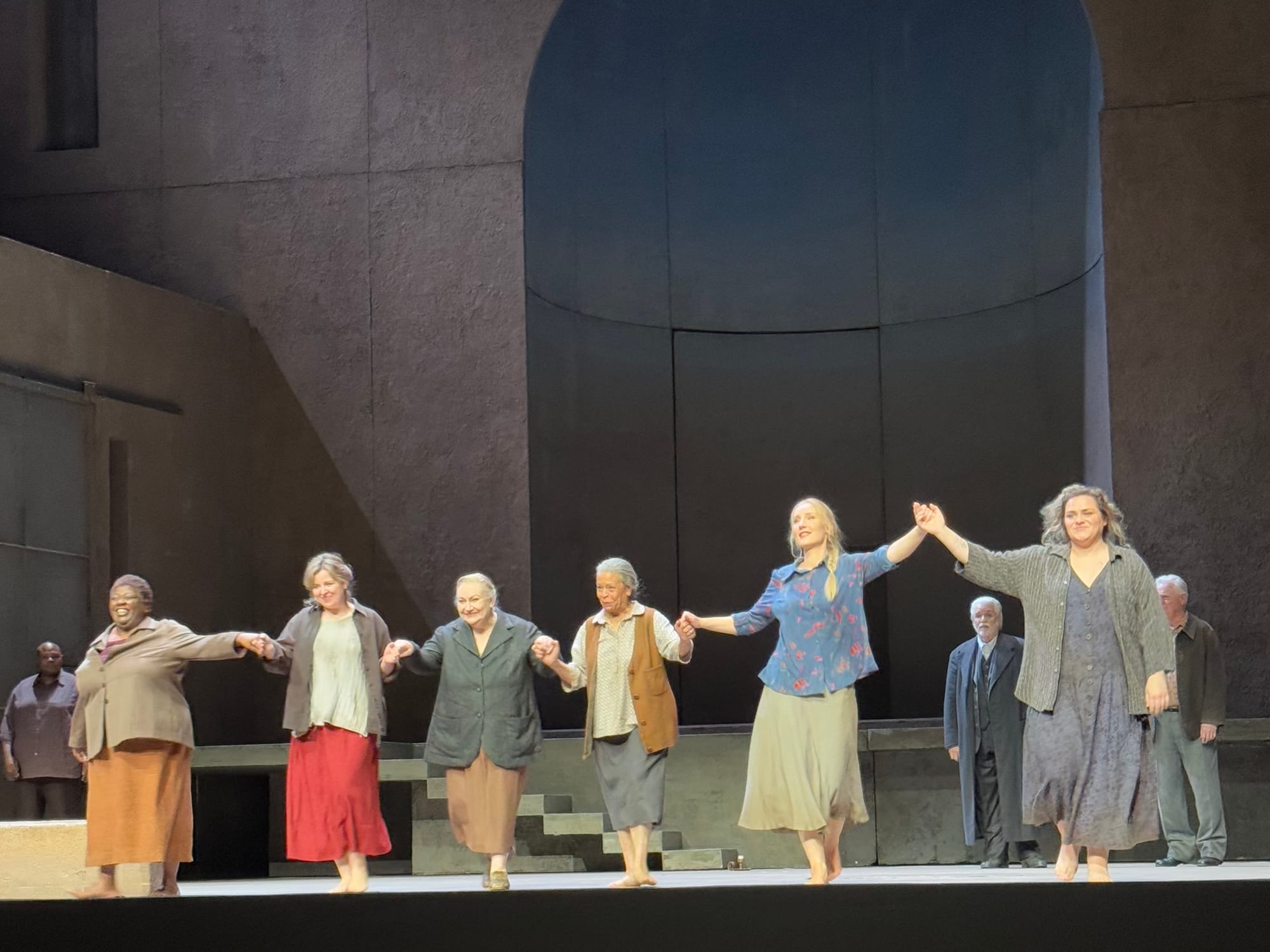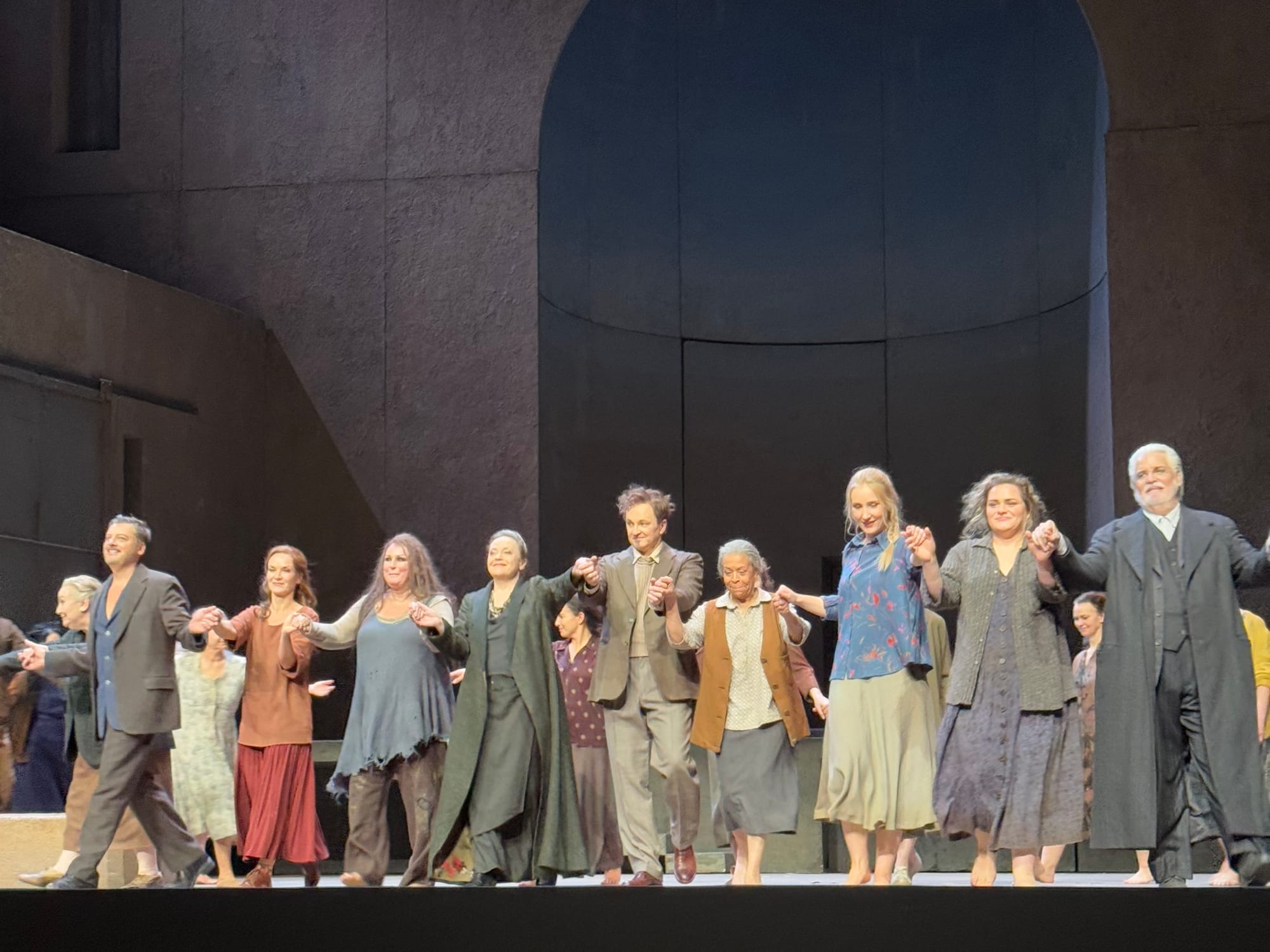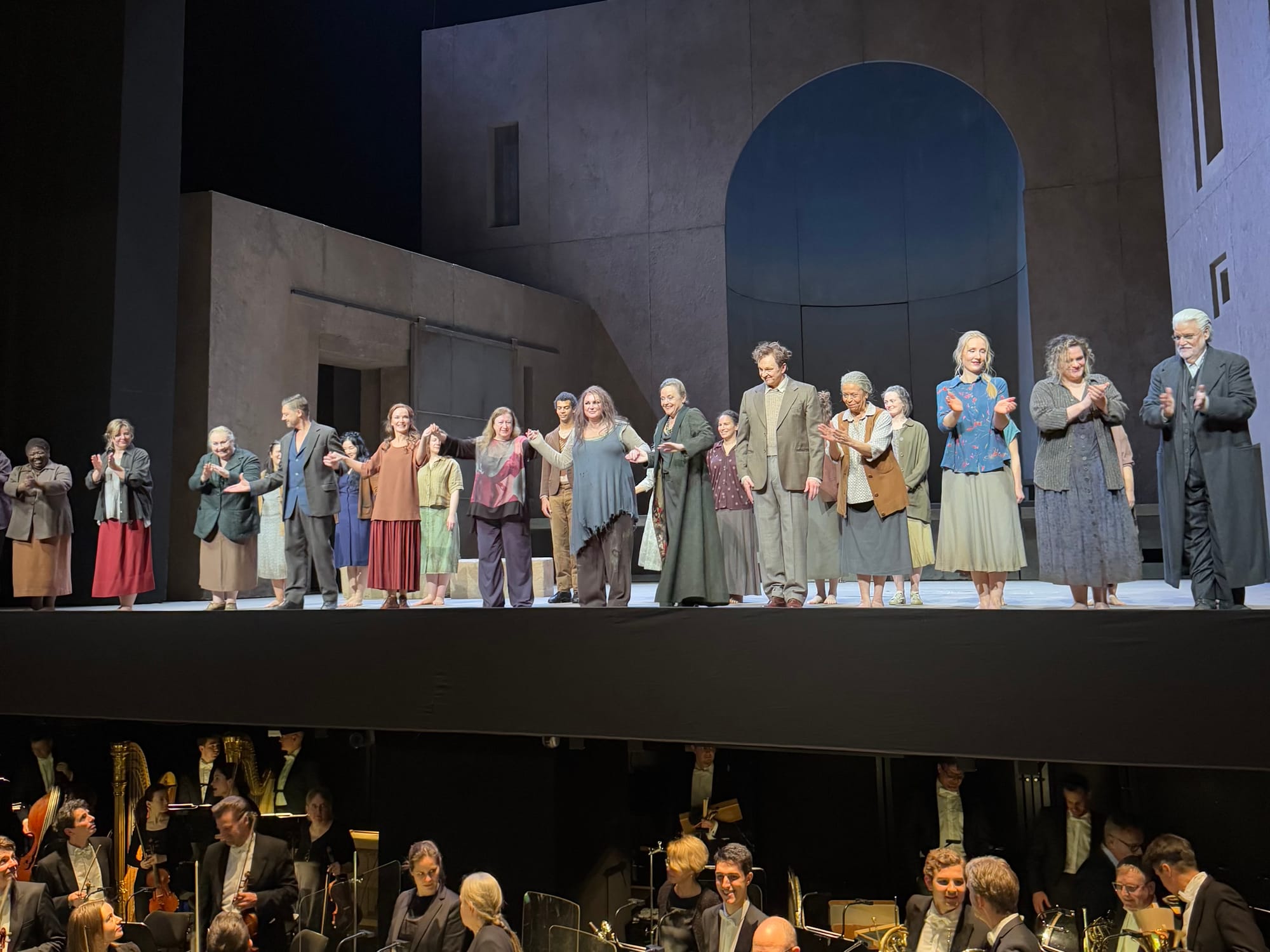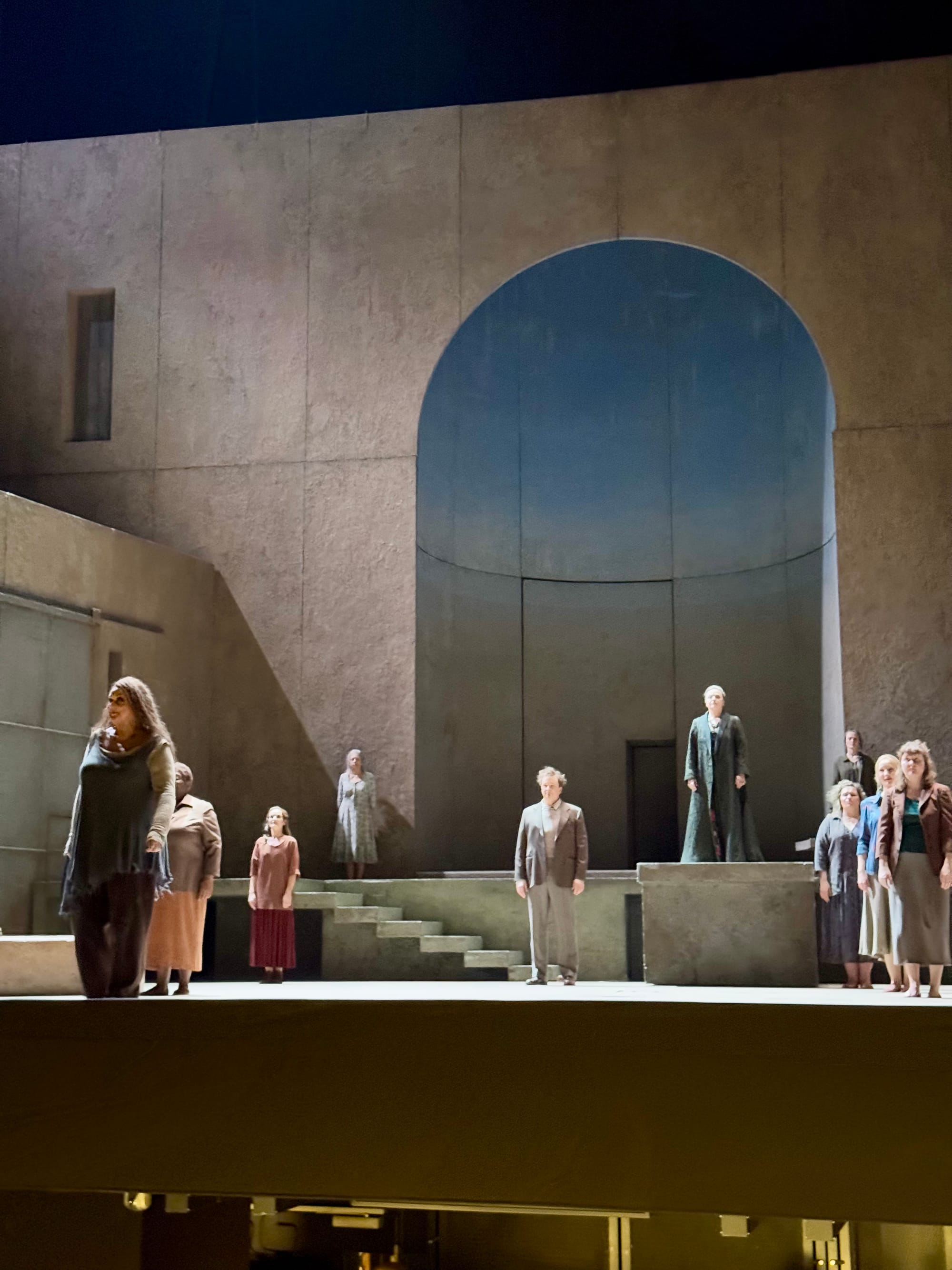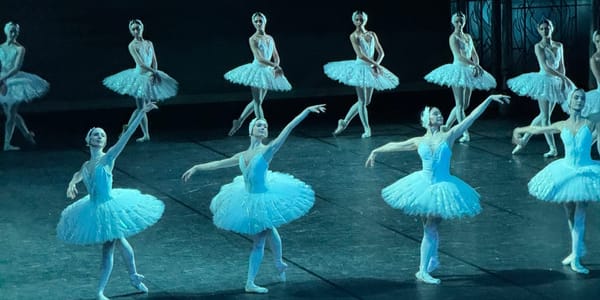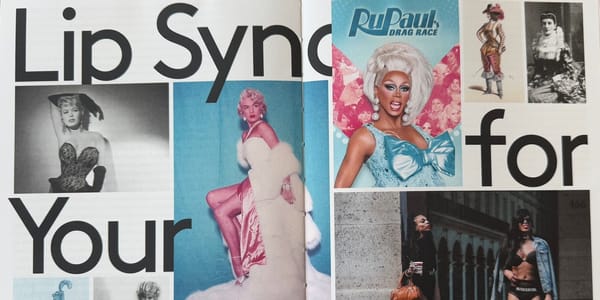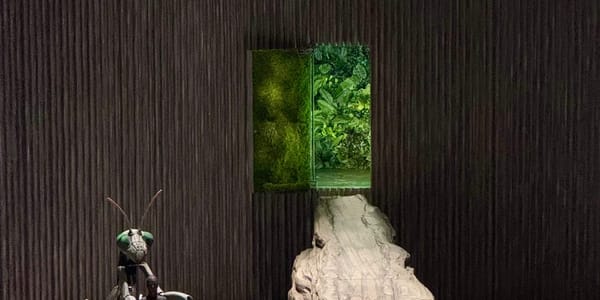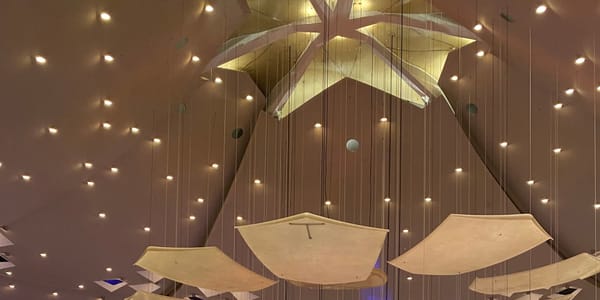Elektra at Staatsoper Berlin
This ELEKTRA doesn’t just tell a story of vengeance and trauma—it makes you feel the weight of generations of women bound by duty, grief, and the remnants of a shattered world.
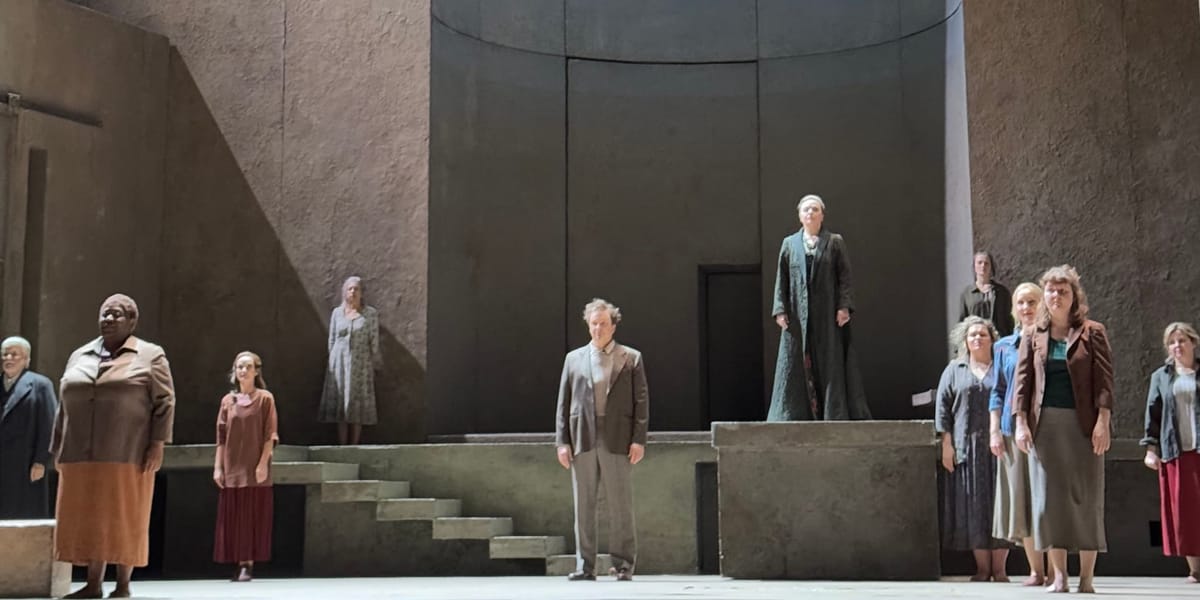
⭐️⭐️⭐️/4
🎭 Elektra
🎶 Richard Strauss
💭 Patrice Chéreau, 2013
🏛️ Staatsoper Berlin
🗓️ 10.02.2025
“OB ICH DIE MUSIK NICHT HÖRE? SIE KOMMT DOCH AUS MIR!”
“Elektra? You‘ll have to buckle up for that one.” is what my Strauss-loving uncle wrote me when I told him that I was going to see this very opera. “Otherwise it’ll simply wash you away in 1.5 hours of non-stop power.” Boy, was he right! Especially since it turns out we had first-row seats to this typhoon of music: not only with a phenomenal undisturbed view of the stage, but consequently also with zero auditory barriers to dampen the sheer force of sound that came our way, from orchestra and singers alike.
The production at Staatsoper Berlin centers the women of the very female-driven story from the onset. As the stage becomes illuminated, we see that it takes a village to keep a court running, and that this village is predominantly composed of women, who in the first minutes water the dry and dusty ground of the main courtyard before the music begins with a bang. The onstage palace is made up of large rectangular blocks evoking concrete or clay with earthen hues of color, firmly emphasizing the desert-like environment that becomes evident in the opening scene. The costumes are more reminiscent of post-war 1950s clothing, making the story‘s women seem almost like Trümmerfrauen putting back together the pieces of their court after the death of the most important man in their midst, King Agamemnon.
I found it notable that among these women, quite a few were more advanced in age—it’s unusual to see a stage full of older singers. I last had this impression when I saw MEISTERSINGER here at Staatsoper, where at least one octogenarian Meister had a singing role (thinking of Siegfried Jerusalem, a true Meistersinger veteran). Whereas MEISTERSINGER is essentially all-male cast, almost all singers in ELEKTRA are women. This would make ELEKTRA one of the few operas that pass the Bechdel test repeatedly (and within just 90 minutes—most of the dialogue is between Elektra, her sister Crysothemis and her mother Klytemnestra).
The cherry on top of this wonder-women-tour-de-force was that the conductor of the evening was also a woman: Simone Young. In fact, once everyone was on stage for the final applause, it became evident just how much this story is driven by its female characters. Of the roughly 25 singers on stage, there were only four men in total: Orest, Ägisth and his caretaker, and Crysothemis’ love interest. Obviously, this is determined by the plot. And yet, I find it entirely worth mentioning in a world in which operas usually reflect the patriarchal systems in which they were composed (and are still performed).
This ELEKTRA doesn’t just tell a story of vengeance and trauma—it makes you feel the weight of generations of women bound by duty, grief, and the remnants of a shattered world. This opera, this production, pulls you straight into the storm and leaves you breathless on the other side. As the final notes fade, one thing becomes clear: ELEKTRA is not just something you hear. It’s something that happens to you.

